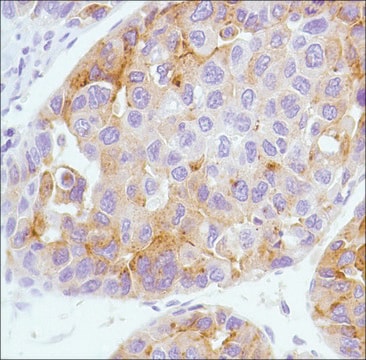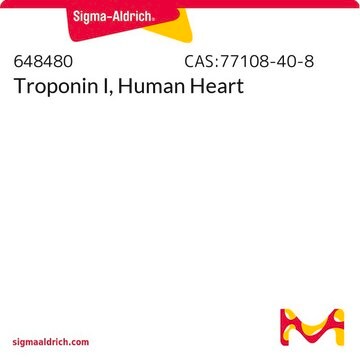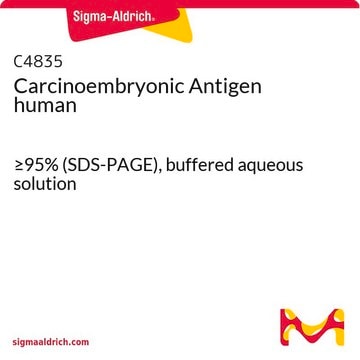RAB0602
Human AFP / Alpha-fetoprotein ELISA Kit
for serum, plasma, cell culture supernatants and urine
About This Item
Productos recomendados
species reactivity
human
packaging
kit of 96 wells (12 strips x 8 wells)
technique(s)
ELISA: suitable
input
sample type urine
sample type plasma
sample type serum
sample type cell culture supernatant(s)
assay range
inter-assay cv: <12%
intra-assay cv: <10%
sensitivity: 6 pg/mL
standard curve range: 7.373-1800 pg/mL
detection method
colorimetric
shipped in
wet ice
storage temp.
−20°C
Gene Information
human ... AFP(174)
General description
Application
Human α-fetoprotein (AFP) ELISA kit has been used to detect levels of AFP in comparison with photoelectrochemical (PEC) immunosensor.
Biochem/physiol Actions
Other Notes
Please type the word sample in the text box provided for lot number.
Los componentes del kit también están disponibles por separado
signalword
Warning
hcodes
pcodes
Hazard Classifications
Met. Corr. 1
Storage Class
8A - Combustible corrosive hazardous materials
flash_point_f
Not applicable
flash_point_c
Not applicable
Certificados de análisis (COA)
Busque Certificados de análisis (COA) introduciendo el número de lote del producto. Los números de lote se encuentran en la etiqueta del producto después de las palabras «Lot» o «Batch»
¿Ya tiene este producto?
Encuentre la documentación para los productos que ha comprado recientemente en la Biblioteca de documentos.
Los clientes también vieron
Nuestro equipo de científicos tiene experiencia en todas las áreas de investigación: Ciencias de la vida, Ciencia de los materiales, Síntesis química, Cromatografía, Analítica y muchas otras.
Póngase en contacto con el Servicio técnico











